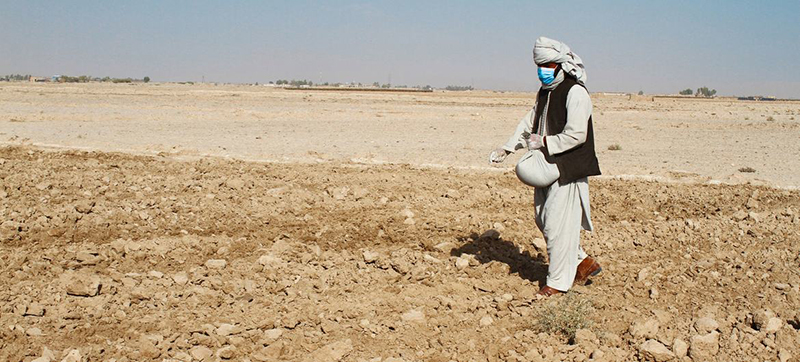 Afghanistan
Afghanistan Afghanistan: UNHCR alarm over forced refugee returns from Tajikistan
New York: On Thursday, UNHCR, the UN refugee agency, warned of the danger faced by Afghan refugees who continue to be detained and deported from Tajikistan, reiterating that it’s illegal to force those fleeing persecution back to their homeland.
In the latest incident, some five Afghans, including a family comprising three children and their mother, were returned home to Afghanistan, despite UNHCR’s protests.
"Tajikistan must stop detaining and deporting refugees, an action that clearly puts lives at risk," said Elizabeth Tan, UNHCR’s Director of International Protection. "Forced return of refugees is against the law and runs contrary to the principle of non-refoulement, a cornerstone of international refugee law."
Separate from legal ramifications, the UN Food and Agriculture Organization (FAO) also expressed concern on Thursday over the ability of returning refugees to make a living.
Richard Trenchard, Representative of the Food and Agriculture Organization of the United Nations (FAO) in Afghanistan, warned that, “almost half the total population face acute food insecurity – hunger on a daily basis.”
The legal and physical perils faced by returning refugees have therefore been compounded by the ongoing food insecurity crisis, which has become more acute in the year since the Taliban takeover.
Funding Intervention
To combat this nascent crisis, the United States Government has announced an $80 million grant to the FAO. Specifically, the grant will be used to build Afghan resilience and bolster efforts to provide food security in the face of continuing drought, economic crisis and conflict.
The five-year contribution from the US Agency for International Development (USAID) will meet farmers’ immediate needs and build healthier, more climate-smart and resilient livelihoods.
Through increasing nutritious food production, fostering environmental sustainability, promoting climate-smart agricultural practices and supporting the diversification of household incomes, FAO aims to revive struggling food markets.
As Mr. Trenchard reflected, “USAID’s generous support will help Afghanistan’s farmers to begin seeing beyond the current crisis and start laying foundations for future recovery.”
Bolstering livelihoods
The direct outcome of investments by the US and FAO will be the increased production and processing of nutritious food. However, the butterfly effect of such development will be improved economic resilience, enhanced public health, and strengthed community security.
Significant environmental benefits will also be achieved through the planting of new forests, climate-smart pasture development, river bank management and reducing soil erosion.
The projects have been designed to encourage engagement by historically oppressed groups in safe income-generating activities.
FAO fosters gender inclusive and intergenerational collaboration to enhance access to local markets and create microfinancing opportunities.
These initiatives target various products including dairy, livestock, crops and aim both to give people tools such as zero-energy cold storages, micro solar dryers and equipment for safe collection and handling of milk and to expand frayed market infrastructures.
Therefore, these schemes are essential because they will not only meet immediate needs, but also eliminate the potential for future insecurity, FAO said.
Support Our Journalism
We cannot do without you.. your contribution supports unbiased journalism
IBNS is not driven by any ism- not wokeism, not racism, not skewed secularism, not hyper right-wing or left liberal ideals, nor by any hardline religious beliefs or hyper nationalism. We want to serve you good old objective news, as they are. We do not judge or preach. We let people decide for themselves. We only try to present factual and well-sourced news.







